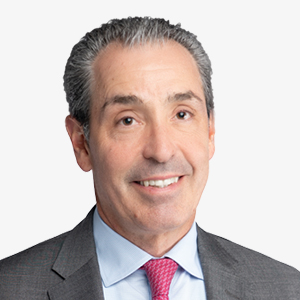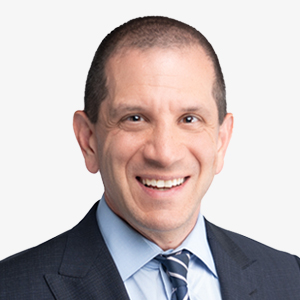US Long Short Equity Fund
UCITS Fund | Hedge Funds & Liquid Alternatives
US Long Short Equity Fund
SFDR | Article 8
Why Invest
Seeks Downside Mitigation
Shorts employed to generate alpha and reduce risk
Reduced Volatility
Seeks to participate in up markets with less volatility than the S&P 500 Index
Experienced and Stable Team
The investment team has been managing long short portfolios since 2008
This is a marketing communication in respect of the Neuberger Berman US Long Short Equity Fund. Please refer to the fund prospectus and offering documents, including the Key Information Document (“KID”) or Key Investor Information Document (“KIID”) as applicable, before making any final investment decisions. Investors should note that by making an investment they will own shares in the fund, and not the underlying assets.
This Fund meets the requirements of Article 8 of the SFDR. Further information is available in the Fund’s offering documents and at www.nb.com.
Key Risks
Market Risk: The risk of a change in the value of a position as a result of underlying market factors, including among other things, the overall performance of companies and the market perception of the global economy.
Interest Rate Risk: The risk of interest rate movements affecting the value of fixed-rate bonds.
Liquidity Risk: The risk that the fund may be unable to sell an investment readily at its fair market value. In extreme market conditions this can affect the fund’s ability to meet redemption requests upon demand.
Derivatives Risk: The fund is permitted to use certain types of financial derivative instruments (including certain complex instruments). This may increase the fund’s leverage significantly which may cause large variations in the value of your share. Investors should note that the fund may achieve its investment objective by investing principally in Financial Derivative Instruments (FDI). There are certain investment risks that apply in relation to the use of FDI. The fund’s use of FDI can involve significant risks of loss.
Credit Risk: The risk that bond issuers may fail to meet their interest repayments, or repay debt, resulting in temporary or permanent losses to the fund.
Counterparty Risk: The risk that a counterparty will not fulfil its payment obligation for a trade, contract or other transaction, on the due date.
Operational Risk: The risk of direct or indirect loss resulting from inadequate or failed processes, people and systems including those relating to the safekeeping of assets or from external events.
Currency Risk: Investors who subscribe in a currency other than the base currency of the fund are exposed to currency risk. Fluctuations in exchange rates may affect the return on investment. Where past performance is shown it is based on the share class to which this webpage relates. If the currency of this share class is different from your local currency, then you should be aware that due to exchange rate fluctuations the performance shown may increase or decrease if converted into your local currency.
For full information on the risks please refer to the fund prospectus and offering documents, including the KID or KIID, as applicable.
Morningstar Rating
For each fund with at least a three-year history, Morningstar calculates a Morningstar Rating based on a Morningstar Risk-Adjusted Return measure that accounts for variation in a fund’s monthly performance (including the effects of sales charges, loads, and redemption fees), placing more emphasis on downward variations and rewarding consistent performance. The top 10% of funds in each category receive five stars, the next 22.5% receive four stars, the next 35% receive three stars, the next 22.5% receive two stars and the bottom 10% receive one star. (Each share class is counted as a fraction of one fund within this scale and rated separately, which may cause slight variations in the distribution percentages.) The Overall Morningstar Rating for a retail mutual fund is derived from a weighted average of the performance figures associated with its three-, five- and ten-year (if applicable) Morningstar Rating metrics. Ratings are ©2023 Morningstar, Inc. All Rights Reserved. The information contained herein: (1) is proprietary to Morningstar and/or its content providers; (2) may not be copied or distributed; and (3) is not warranted to be accurate, complete or timely. Neither Morningstar nor its content providers are responsible for any damages or losses arising from any use of this information.
The ongoing charge figure (incl. management fee) is based on the annual expenses for the period ending 31 December 2024. For share class A1 only, the ongoing charge shown (incl. management fee) has been reduced as of 1 April 2023 due to a lower management fee. For additional details, please read the prospectus/KIID/KID.
A performance fee equal to the figure shown in the table above may be payable in accordance with the methodology described in the supplement. Please see the "Fees and Expenses" section of the supplement for more detail.
The fund’s benchmark name here may be abbreviated. Please refer to the prospectus supplement for the full benchmark name.
Charles Kantor
Charles C. Kantor, Managing Director, joined Neuberger Berman in 2000 and currently serves as a member of the firm’s Partnership Committee. Charles is the founder and Senior Portfolio Manager of the Kantor Group, which manages over $10 billion in public equity, fixed income and private market strategies for high net worth and institutional clients. His team is also responsible for managing Neuberger Berman’s Long Short and Large Cap Growth strategy. Prior to joining the firm, Charles was a managing director of Stern Stewart’s Financial Institutions division. There he advised clients on implementing EVA-based financial management systems and co-authored academic papers in the Journal of Applied Corporate Finance. In addition, Charles is a commentator and contributor to various financial and business news media outlets. He earned a Bachelor of Commerce in Accounting and Economics from the University of Cape Town, South Africa, and an MBA (with honors) from Harvard University Graduate School of Business.


